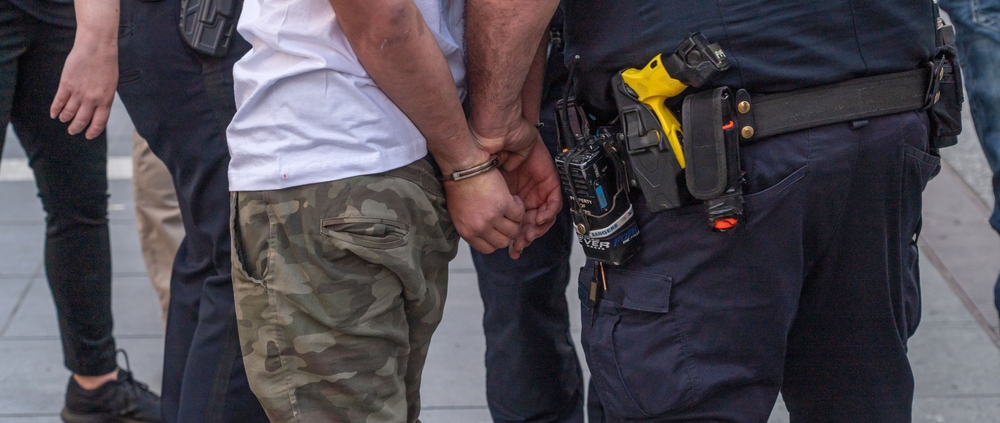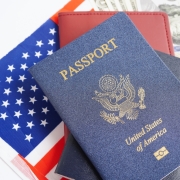What You Should Know If You Are Arrested in New York City: What to Do?
By Brian Figeroux, Esq. | Editorial credit: Ron Adar / shutterstock.co,
Being arrested in New York City is an overwhelming and frightening experience. Whether you were wrongly accused or made a mistake, knowing your rights and taking the appropriate steps can make a significant difference in the outcome of your case. New York’s criminal justice system is complex, and without proper legal guidance, your rights may be at risk. This article explains what you should know if you are arrested, what to do in the critical moments that follow, and why consulting a skilled attorney is essential to protecting your freedom. Read more at www.askthelawyer.us. To read the complete analysis in our publication, click here, and on our civil rights blog, click here.
- Understanding the Arrest Process in New York City
An arrest in New York City typically begins when the police believe there is probable cause to suspect you of committing a crime. The arrest process can happen in one of two ways:
- On-the-Spot Arrest: If the police catch you committing a crime or have a warrant, they can arrest you immediately. This often occurs during traffic stops, public incidents, or routine checks.
- Arrest Warrant: If the police investigate and gather enough evidence, they may obtain a warrant from a judge and later arrest you at your home, workplace, or elsewhere.
Upon arrest, you will be taken to the nearest police precinct for processing, also known as being “booked.” This process includes recording your personal information, fingerprints, and photographs.
- Know Your Rights: Miranda Rights
When you are arrested, you have specific legal rights under the U.S. Constitution, known as Miranda Rights. The police must inform you of the following:
- The Right to Remain Silent: You are not obligated to answer questions or provide a statement to the police. Anything you say can and will be used against you in court.
- The Right to an Attorney: You have the right to consult an attorney before speaking to the police. If you cannot afford an attorney, one will be appointed for you.
What to Do:
- Stay Calm and Silent: Do not argue or resist arrest, as it could worsen your situation. Simply state, “I wish to remain silent, and I want to speak to my lawyer.”
- Do Not Volunteer Information: Avoid explaining or defending yourself on the spot. Even casual statements can be misconstrued and used as evidence.
- Understanding Arraignment
After processing, you will be brought before a judge for arraignment, typically within 24 hours of your arrest. At the arraignment:
- The charges against you will be formally presented.
- The judge will decide whether to release you, set bail, or hold you in custody.
- You will enter a plea of guilty or not guilty.
It is essential to have a lawyer present at this stage. An attorney can argue for your release, request a lower bail amount, and help you understand your legal options.
- What to Do If You Are Arrested
Step 1: Remain Silent
Your silence is one of your most powerful tools. Do not admit guilt, explain the situation, or try to talk your way out of the arrest. Calmly inform the police that you will not speak without your attorney.
Step 2: Call an Attorney
If you are arrested, contacting an experienced criminal defense attorney is critical. An attorney will:
- Advise you on what to say and what not to say.
- Represent you at the arraignment.
- Investigate the circumstances of your arrest.
- Work to secure your release and build a strong defense strategy.
Step 3: Avoid Talking to Anyone Else About Your Case
Conversations with friends, family, or other inmates may not be protected. Only speak to your attorney about your situation.
Step 4: Document the Details
After your release, write down everything you can remember about the arrest, including:
- The time, date, and location.
- The names or badge numbers of the officers.
- Any witnesses or people involved.
This information can be crucial to your defense.
- The Importance of Legal Representation
The criminal justice system in New York City can be intimidating, especially if you are unfamiliar with the legal process. Having a knowledgeable and experienced attorney ensures that your rights are protected at every step. A lawyer will:
- Analyze Your Case: Review the evidence, investigate the circumstances of your arrest, and identify weaknesses in the prosecution’s case.
- Negotiate Plea Bargains: If appropriate, an attorney can negotiate reduced charges or lighter penalties.
- Defend You in Court: If your case goes to trial, a skilled attorney will present a strong defense to protect your freedom and future.
The consequences of a criminal conviction can be severe, including jail time, fines, loss of employment, and damage to your reputation. An experienced attorney can help minimize these outcomes and, in some cases, get the charges dismissed entirely.
- Avoiding Common Mistakes After an Arrest
Many people inadvertently harm their own cases by making mistakes after an arrest. Here’s what to avoid:
- Resisting Arrest: Do not fight with police officers, as it can lead to additional charges.
- Talking Too Much: Providing explanations or excuses can unintentionally provide evidence against you.
- Signing Documents Without Legal Advice: Never sign a statement or waiver without consulting an attorney first.
- Missing Court Dates: Failing to appear in court can result in a warrant for your arrest.
- How Figeroux & Associates Can Help
If you or a loved one has been arrested in New York City, the Law Firm of Figeroux & Associates is here to help. With years of experience handling criminal defense cases, the firm provides aggressive and compassionate representation for clients facing charges. The attorneys at Figeroux & Associates will:
- Protect your constitutional rights.
- Guide you through the legal process.
- Work tirelessly to achieve the best possible outcome for your case.
Do not face the criminal justice system alone—reach out to professionals who understand the complexities of New York law.
Conclusion
If you are arrested in New York City, it is critical to remain calm, assert your rights, and seek professional legal help. Acting quickly and consulting a skilled attorney can make all the difference in protecting your future. The Law Firm of Figeroux & Associates stands ready to help you navigate the complexities of the legal system and fight for the best outcome possible. Your freedom and reputation are worth defending—don’t wait to ask the lawyer.
To schedule an appointment, call 855-768-8845 or visit www.askthelawyer.us












Leave a Reply
Want to join the discussion?Feel free to contribute!